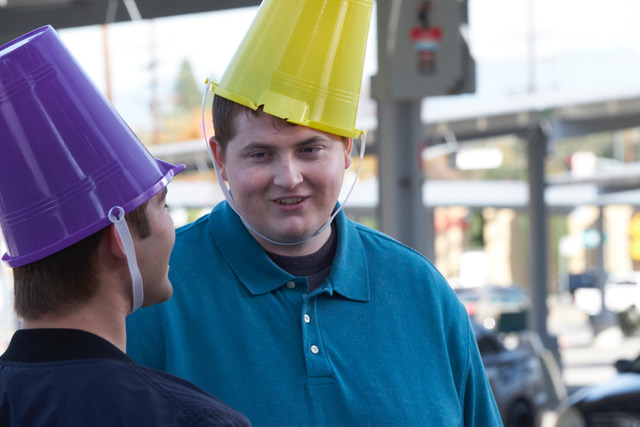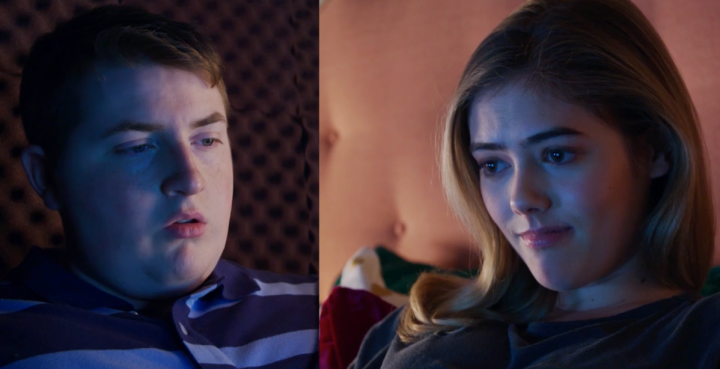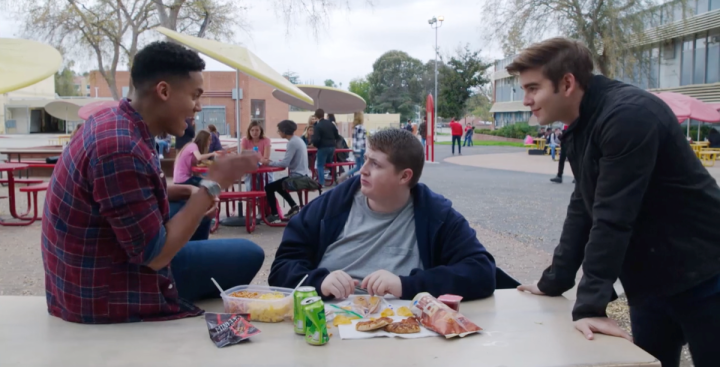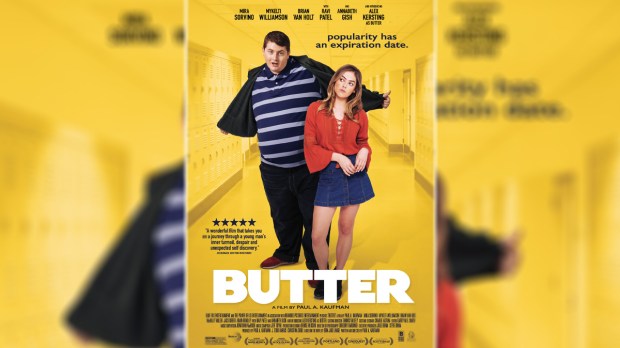Whenever I hear about teen suicide, my heart breaks for the teen, the impacted family and community. When I was in college seminary, there was a string of teenage suicides in Northeast Wisconsin, including in my own hometown. I didn’t know any of the families involved but that didn’t stop me from praying for the repose of their souls and the consolation of their families. In my first priestly assignment, I walked with young people as two different suicides occurred. There’s a good chance you know a family of someone who has been impacted by a suicide.

A new movie, Butter, in theatres February 25, provides an opportunity for adults to talk to young people about suicide. The main character, an overweight teen nicknamed “Butter” by his peers hatches a plot to end his own life at the end of the year; the main event would be called Butter’s Last Meal, and he had plans to livestream it.
In the film Butter has a few weeks to develop his plan and make others aware of it. Shockingly, his popularity around school increases, and everyone wants to be his friend. Perhaps unrealistic, no one speaks up about his plans. His friends don’t inform his parents, teachers, or anyone. They just simply go with it, most likely because they don’t take his threat seriously.

One of the ways that Butter can help people talk about teen suicide is to look for the different missed opportunities as the film progresses. We can place ourselves in the situation and identify moments where someone should have spoken up. Butter has a support system in his family, a friend, and a teacher, but he doesn’t make use of them as he ought because he hides the dark thoughts and plans from them.
As we follow Butter throughout the movie, we can also look for different warning signs that something wasn’t right. He clearly becomes more withdrawn and reserved. Perhaps the greatest lesson from the film for viewers is: if you see something, tell someone. If you feel like you want to hurt yourself, get help and talk to someone.

Suicide and the Catholic faith
Butter will also offer faith leaders an opportunity to address this important issue with teens and young adults. The Catechism of the Catholic Church broaches the topic in paragraphs 2280-2283. Facing the darkness of suicide, the Catechism offers the hope of light, saying, “We should not despair of the eternal salvation of persons who have taken their own lives. By ways known to him alone, God can provide the opportunity for salutary repentance. The Church prays for persons who have taken their own lives.”
A few other stories from our Catholic tradition provide us hope, too. The parish priest of Ars, St. John Vianney, once consoled a woman mourning the death of her husband who jumped off a bridge. The woman who sought to speak with the Curé of Ars was told: “I tell you he is saved. He is in Purgatory, and you must pray for him. Between the parapet of the bridge and the water he had time to make an act of contrition.” St. John Vianney continued, “Our Blessed Lady obtained that grace for him. Remember the shrine that you put up in your room during the month of May? Though your husband professed to have no religion, he sometimes joined in your prayers; this merited for him the grace of repentance and pardon at the last moment.”
A similar thought is related to St. Faustina from Jesus himself, who told her that a soul is given three opportunities to repent at the time of death. This is a hope-filled statement for any of us, but especially for those concerned about the soul of a loved one or friend who dies by suicide.

For people who have had a family member or friend die from suicide, this movie might be painful, and you may wish not to see it. If you know someone contemplating suicide, tell someone so that person can get the help they need. If you are thinking about suicide, please reach out to someone at the National Suicide Prevention Hotline, at 800-273-8255.
The movie Butter is a good reminder for us all that life is worth living, that we are loved, and more people care about us than you could ever imagine.




